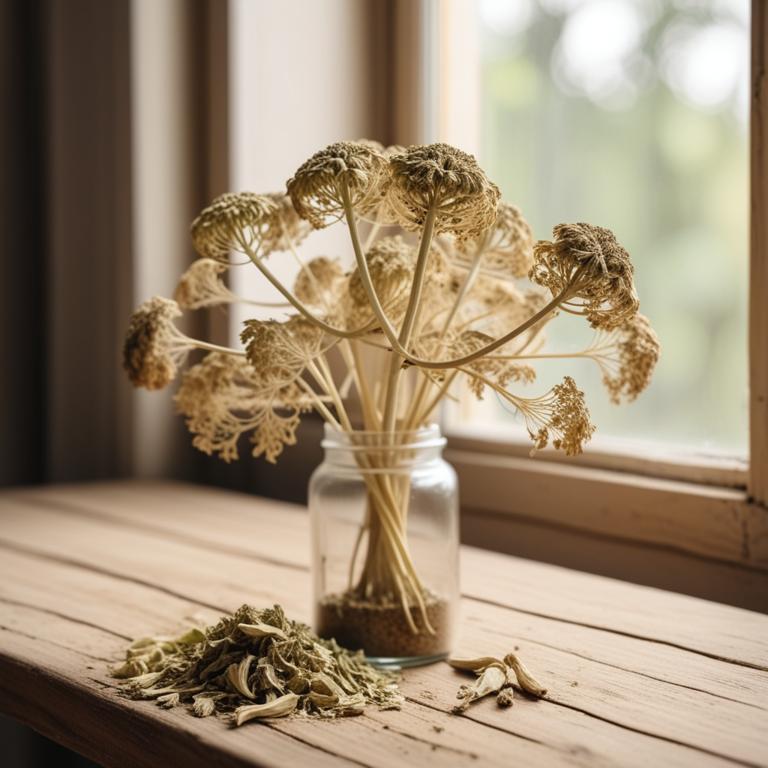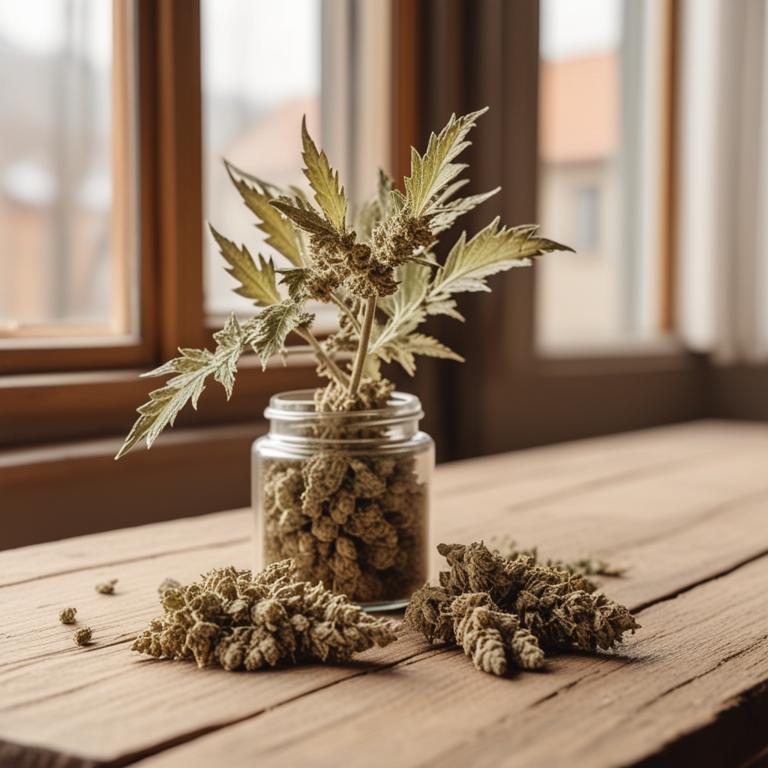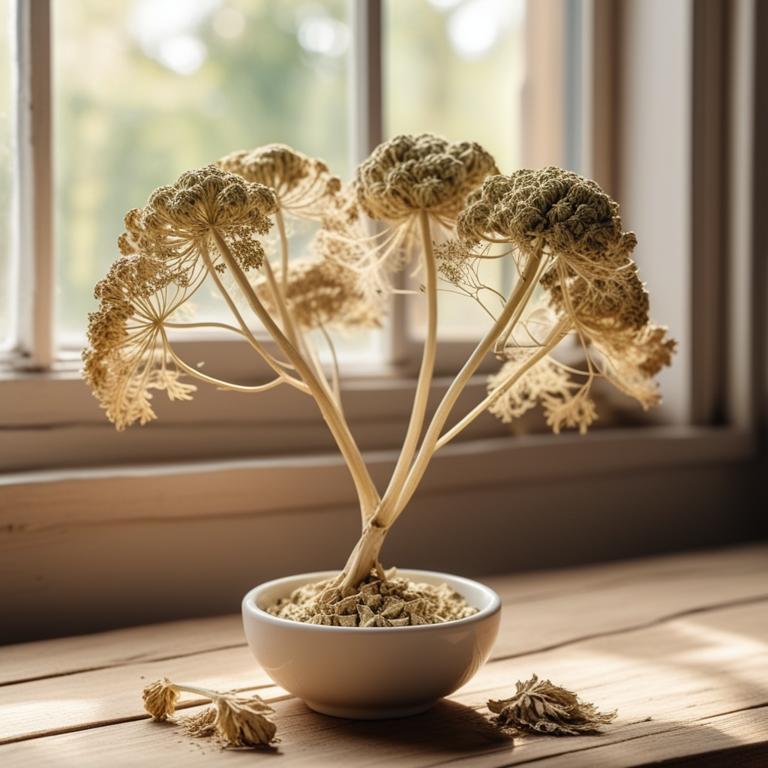Updated: Dec 1, 2024
Amenorrhea Causes, Symptoms, and Treatment with Medicinal Herbs
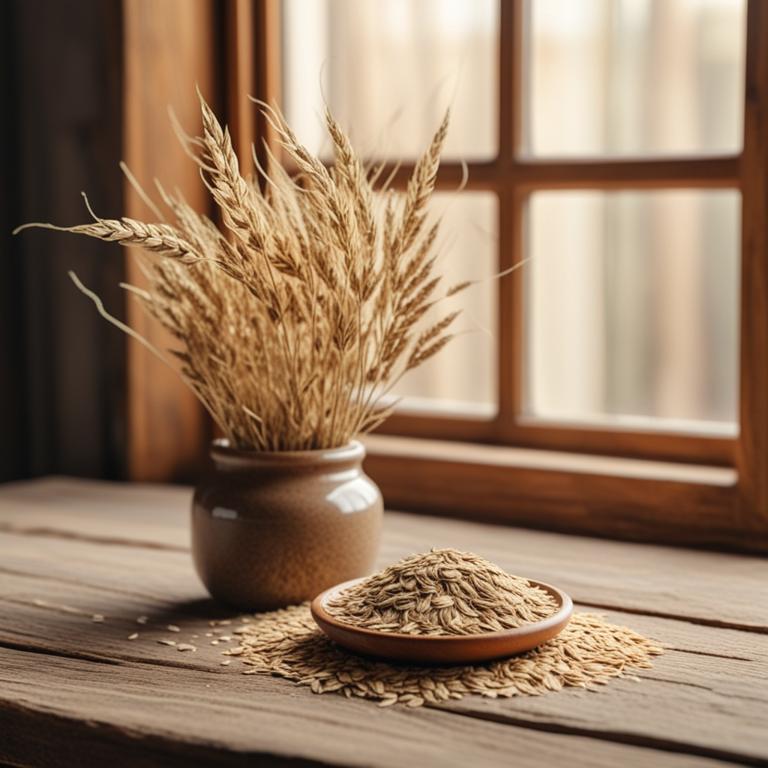
Amenorrhea is a condition where a woman's period stops for several months or a year or more.
This can cause emotional distress, affect fertility, and disrupt daily life. Women with amenorrhea may experience weight gain, mood swings, and difficulty getting pregnant. Amenorrhea can be caused by a variety of factors, including hormonal imbalances, polycystic ovary syndrome (PCOS), thyroid disorders, and extreme weight loss or gain. It can also be a side effect of certain medications or a sign of underlying medical conditions. Fortunately, herbal remedies may help restore menstrual cycles in women with amenorrhea.
Herbs such as vitex, also known as chasteberry, have been traditionally used to regulate hormones and stimulate menstrual flow. Another herb, red clover, is rich in isoflavones, which may help balance estrogen levels. Dong quai, a Chinese herb, is believed to nourish the uterus and promote menstrual regularity. Herbal teas and tinctures can be used to prepare these herbs for consumption. A tea blend of vitex, red clover, and dong quai may be a good starting point. Some herbalists also recommend taking these herbs in capsule or tablet form.
It's essential to consult with a healthcare provider before starting any new herbal remedies, especially if you're experiencing amenorrhea due to an underlying medical condition.
Table of Contents
What factors contribute to amenorrhea?
The main causes of amenorrhea are often related to hormonal imbalances or physical conditions that affect the reproductive system.
One common cause is Polycystic Ovary Syndrome (PCOS), a condition where the ovaries have multiple cysts and don't function properly. This leads to an imbalance of hormones, particularly androgens, which can disrupt menstrual cycles. Hypothalamic Amenorrhea is another cause of amenorrhea, where the hypothalamus, a small gland in the brain, doesn't send the right signals to the pituitary gland to stimulate ovulation and menstrual cycles. This can be due to stress, excessive exercise, or a low body mass index (BMI).
Premature Ovarian Failure (POF) is a condition where the ovaries stop functioning and producing eggs before the age of 40. This can be due to genetics, autoimmune disorders, or chemotherapy. As a result, menstrual cycles become irregular or stop altogether. A pituitary tumor is a rare cause of amenorrhea, where a non-cancerous or cancerous tumor develops on the pituitary gland, disrupting its function. This can lead to hormonal imbalances, including those that affect menstrual cycles.
The tumor can press on the pituitary gland, preventing it from sending the right signals to stimulate ovulation and menstrual cycles.
What benefits can be obtained by using herbs to treat amenorrhea?
Using herbs to help with amenorrhea can be a great option for some people.
One of the main benefits is that they can help stimulate the body's natural menstrual cycle. These herbs work by promoting hormonal balance, which is often a key issue in amenorrhea. By regulating the hormones that control menstruation, the herbs can encourage the body to start having periods again.
Another benefit is that they can help reduce stress and anxiety, which are common causes of amenorrhea. The herbs can also help improve overall health and well-being, which is often compromised in people with this condition. Additionally, some herbs can help improve the quality and frequency of periods, making them a more reliable option than synthetic medications.
However, it's essential to note that herbs may not work for everyone and should be used under the guidance of a healthcare professional.
What are the main herbal supplements for treating amenorrhea?
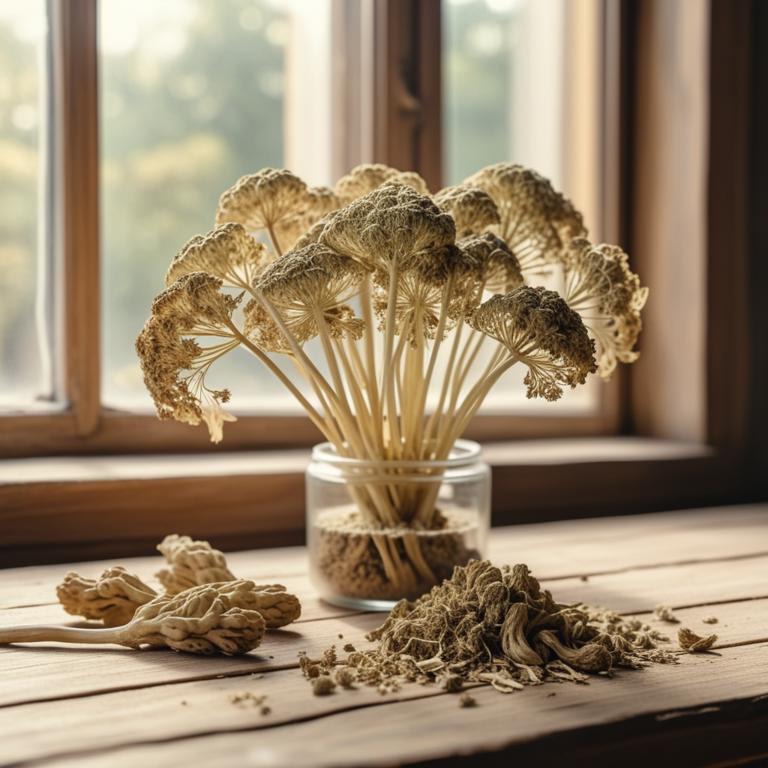
Amenorrhea is a condition where a woman's menstrual cycle stops or is irregular.
Some herbs have been found to be helpful in regulating menstrual cycles and addressing the underlying issues. Angelica sinensis, also known as dong quai, has been used for centuries to help regulate menstrual cycles and improve blood flow to the uterus. It's thought to help stimulate uterine contractions, which can help initiate a period. Cuscuta chinensis, or tu si zi, is another herb that's been used to help regulate menstrual cycles. It's believed to help nourish and warm the uterus, which can help stimulate a period. This herb is often combined with others to enhance its effects. Ginkgo biloba, or maidenhair tree, is an herb that's often used to improve blood flow and circulation.
By improving blood flow to the uterus, it may help stimulate a period and address issues related to amenorrhea. It's also known for its antioxidant properties, which can help reduce inflammation and promote overall health. Paeonia lactiflora, or peony root, has been used in traditional Chinese medicine to help regulate menstrual cycles and address issues related to amenorrhea. It's believed to help nourish and calm the uterus, which can help stimulate a period. This herb is often combined with others to enhance its effects. Rehmannia glutinosa, or di Huang, is an herb that's often used to nourish and calm the body. It's believed to help nourish and calm the uterus, which can help stimulate a period and address issues related to amenorrhea.
This herb is often combined with others to enhance its effects.
What are the leading herbal preparations used to manage amenorrhea?

Herbal preparations can help with amenorrhea, a condition where a woman doesn't get her period.
A decoction is a strong tea made by boiling herbs in water. It's good for amenorrhea because it can help stimulate the uterus and ovaries, which are the parts of the body that control periods. A tea is a weaker version of a decoction. It's also made by steeping herbs in hot water, but you don't boil them. Tea is a good option for amenorrhea because it's easy to make and can help calm the body, which can be beneficial when you're not getting your period. A tincture is a liquid extract of herbs. It's made by soaking herbs in a solvent like alcohol or glycerin.
Tinctures are good for amenorrhea because they can be taken in small doses and can help stimulate the body's natural processes. An infusion is similar to a tea, but you use cold water instead of hot water. This is a good option for amenorrhea because it's gentle and can help soothe the body. A capsule is a small pill made of herbs. It's a good option for amenorrhea because it's easy to take and can provide a concentrated dose of herbs. Some herbs that can help with amenorrhea include ginger, turmeric, and dandelion root. These herbs have anti-inflammatory and hormone-balancing properties that can help stimulate the body's natural processes and regulate periods.
Some examples of herbal preparations that can help with amenorrhea include: ginger decoction, which can help warm the body and stimulate the uterus; dandelion root tea, which can help cleanse the body and regulate hormones; and turmeric tincture, which can help reduce inflammation and balance hormones.
Additional Resources:
What herbs should be avoided to prevent worsening of amenorrhea?
If you have amenorrhea, it's best to avoid some herbs that might make the condition worse.
One of these herbs is licorice root, Glycyrrhiza glabra. It can raise blood pressure and make it harder for your body to manage fluids, which can be a problem if you're already not getting your period. Astragalus membranaceus is another herb you might want to steer clear of. It's often used to boost energy and fight off infections, but it can also slow down menstrual cycles and make it harder for your body to regulate its hormones.
Black cohosh, Cimicifuga racemosa, is sometimes used to ease menopause symptoms, but it's not a good idea to use it if you have amenorrhea. It can affect hormone levels and make it harder for your body to get back to a regular menstrual cycle. Another herb to watch out for is American snakeroot, Actaea racemosa. It's often used for its anti-inflammatory properties, but it can also disrupt hormone balances and make it harder for your body to regulate its menstrual cycle. Lastly, kudzu, Pueraria montana, is another herb you might want to avoid if you have amenorrhea.
It can stimulate the body to produce more estrogen, which can be a problem if your body is already not producing enough hormones to get your period.
FAQ
Are there any specific herbs that can prevent amenorrhea?
Some herbs may help regulate menstrual cycles and prevent amenorrhea.
For example, vitex, also known as chasteberry, is often used to stimulate the ovaries and uterus. It's thought to help balance hormones and improve menstrual regularity.
Dong quai, a Chinese herb, is also sometimes used to support the female reproductive system.
Is it safe to use herbal remedies for amenorrhea during pregnancy?
Using herbal remedies for amenorrhea during pregnancy is not recommended.
Some herbs can stimulate the uterus and cause contractions, which can be risky. Other herbs can affect hormone levels or interact with medications, which can harm the mother and baby.
It's best to avoid them and talk to a doctor about other options.
Are there any herbs that can reduce the frequency of amenorrhea?
Some herbs, like vitex, have been studied for their potential to help regulate menstrual cycles and reduce the frequency of amenorrhea.
Vitex is thought to help balance hormonal imbalances that can cause irregular periods.
It's often used in traditional herbal remedies, but more research is needed to confirm its effectiveness.
Can i combine different herbal remedies for amenorrhea?
Combining herbal remedies for amenorrhea can be tricky.
Some herbs, like vitex and red clover, can stimulate hormone production, while others, like ginger and turmeric, may help regulate menstrual cycles. If you're considering multiple herbs, start with small doses and observe how your body reacts.
This will help you find a balance that works for you.
Related Articles
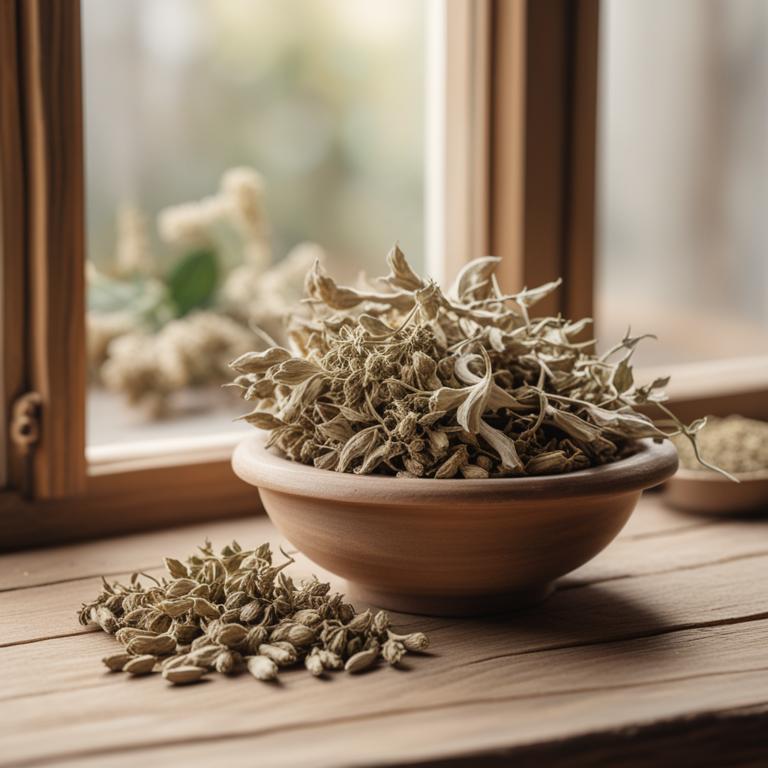
Overcoming Erectile Dysfunction with Medicinal Herbs and Natural Preparations
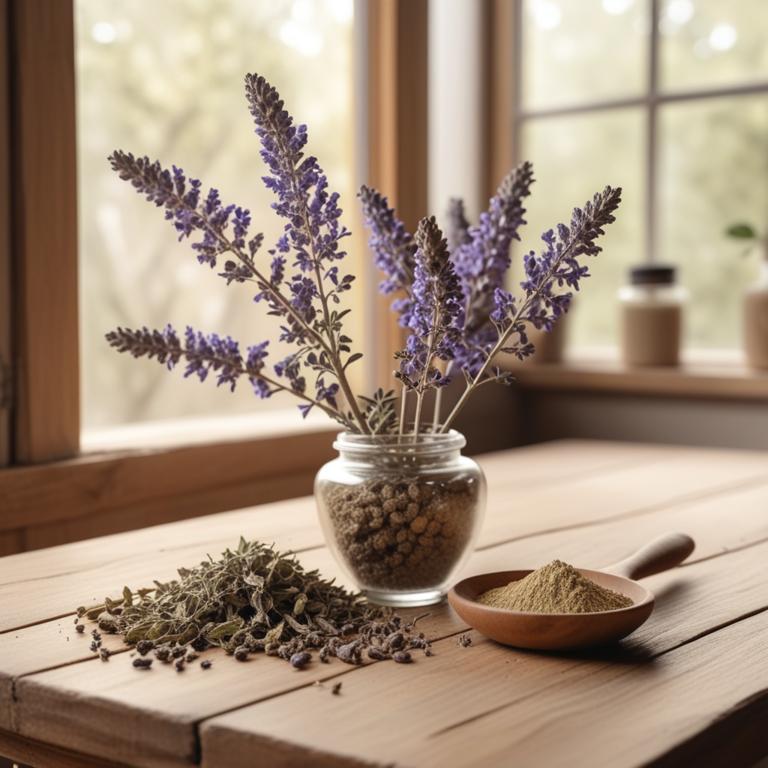
Overcoming Premenstrual Syndrome: Causes and Effective Herbal Remedies
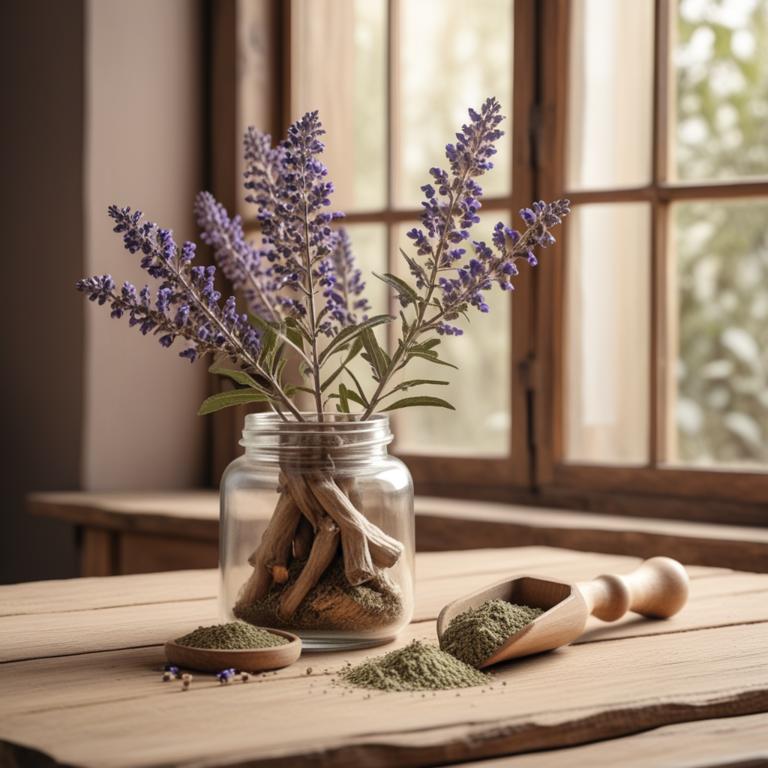
Fibrocystic Breast Disease Treatment: Causes and the Role of Medicinal Herbs

The Menopause Guide: Causes, Herbs, and Herbal Preparations

Nipple Pain During Breastfeeding: Causes, Herbal Preparations, and Natural Relief
